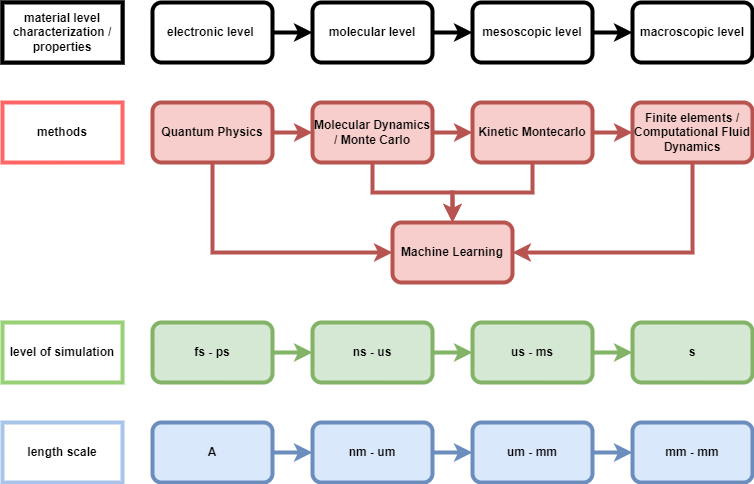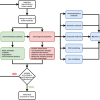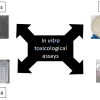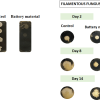
In silico design of materials
In silico (computational) design of materials for relevant applications such as energy or environmental develops a pivotal role in industry for decreasing risk, time and cost for materials development, thus leading to an increase in competitiveness. The possibility of developing task – specific materials with fine tuned properties according to the application and client needs will lead to cost effective materials, thus improving process development. The International Research Center in Critical Raw Materials for Advanced Industrial Technologies (ICCRAM) from the University of Burgos (UBU) provides a platform for developing multiscale materials modeling, design and characterization, providing results on electronic, atomistic, nano, micro and macroscale. Diferrent physicochemical methods are available in our platform (quantum physics, molecular dynamics, Kinetic Monte Carlo, finite elements, computational fluids dynamics) as well as Machine Learning and artificial intellegence methods for materials design and property prediction.
The platform can be used in two different ways: i) clients may provide a technological need and our team can design a proper material solution according to the proposed requirements, or ii) an available material may be improved accoring to client needs. The platform allows materials design considering technological requirements, physicochemical properties, economical factors as well as sustainabilty and safe by design considerations.
Deliverables
The material under study may be of different classes: nanomaterials (mono and multicomponent), solids, porous compounds, 2D materials, catalysts, gas sorbents, water treatment materials, (green) solvents, active pharmaceutical ingredients, and any other application in which specific materials needs to be designed ex novo or modified to improve its functionality.
Contact Listings Owner Form
- Learn about who has visited this offer
- Get funding opportunities matching this technology
- Get detailed access statistics as listing owner





